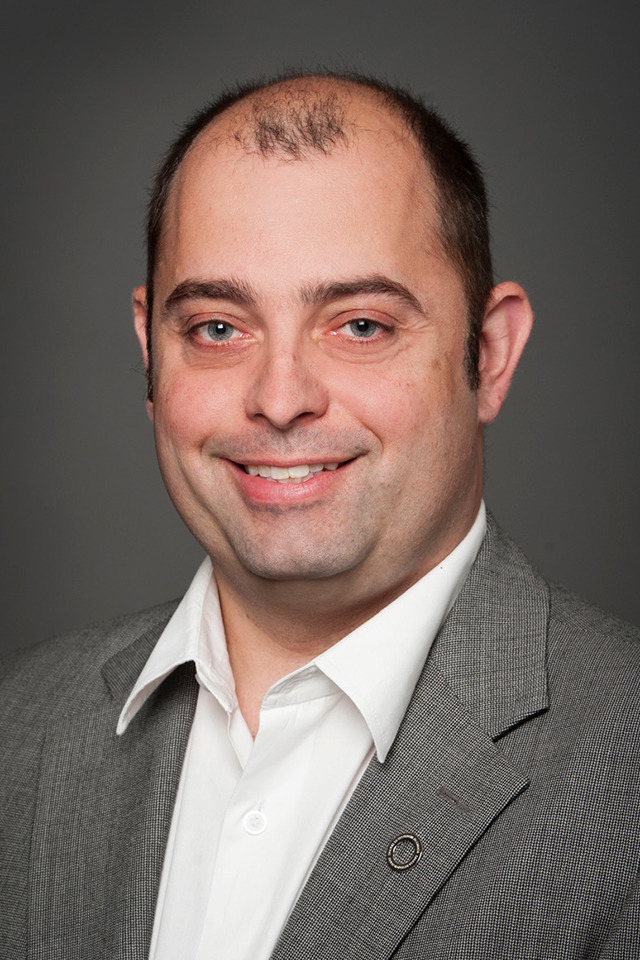By Jessica Sinclair
Research writer
A team of nine labs, led by uOttawa virologist Dr. Marc- André Langlois, has secured $1-million in CIHR funding to pursue a combination of tools against COVID-19, including therapeutic and diagnostic antibodies and a nasal spray vaccine.
The funding is part of a government investment totaling $26.8 million for research into solutions to the COVID-19 outbreak. Four additional uOttawa researchers received funding, including the Faculty of Medicine’s Drs. Ronald Labonté and Kumanan Wilson; Dr. Maxim Berezovski of the Department of Chemistry and Biomolecular Sciences; and Dr. Patrick Fafard of the Graduate School of Public and International Affairs.
Dr. Langlois’ team has access to a certified Containment Level 3 lab in Ottawa, allowing the uOttawa and National Research Council scientists to safely work on the live infectious SARS-CoV-2 virus. They will begin immediately, and even if the current coronavirus epidemic is eventually contained, their work will better prepare us against any future outbreak of a coronavirus—a prospect Dr. Langlois judges to be “highly likely”.
“We hope to isolate antibodies that are cross-reactive to several key members of the coronavirus family,” says Dr. Langlois. “So if ever there is another outbreak of a new coronavirus, we will already have tools to counter it.”
There are about 40 species of coronavirus known to circulate, many of which are in bats, whose immune system can better cope with chronic inflammation caused by the virus. The bats constitute a natural reservoir for the virus. Occasionally these viruses spill over to human populations, which don’t fare so well. This famously happened in 2003, when the coronavirus SARS broke out in China’s Guangdong province.
First, Dr. Langlois’ team will generate a number of single-domain antibodies—small matchstick-shaped proteins that can neutralize the virus—with the help of two llamas. Animals of the camelid family, it turns out, are specialists in producing these types of antibodies.
Then the scientists will clone the genes that code for the llama’s anti-coronavirus antibodies and reverse engineer them so they can be mass-produced in the lab. Single-domain antibodies have a better chance of neutralizing the virus than human antibodies do, because they can reach smaller receptive areas on the surface of the virus.
As well, the antibodies that bind to the surface of the virus can serve as a label to diagnose the strain of coronavirus present in a patient sample.
Every time coronavirus enters a new person, it comes out with a slightly different genetic sequence. Dr. Langlois’ team will investigate how quickly the virus is evolving and work out how long a given drug or vaccine could hold up against a virus that is constantly mutating to evade it.
Then comes the team’s most ambitious project—attempting to develop a vaccine. Taking a different approach from other researchers, they will use various plants to mass-produce the viral spike proteins that are on the surface of the coronavirus. These proteins become a target that the immune system can learn to detect as a threat. The plant-based method is cheaper, easier and safer than traditional methods that use animal cell cultures in bioreactors.
The goal is to use the resulting viral proteins to make a nasal spray vaccine. Coronavirus often enters through the nose, and triggering an immune response in the same tissues that are likely to encounter it first can be very effective. Many of the countries whose emerging economies will be most burdened by coronavirus also attach a stigma to needles and favor nasal spray vaccines instead.
“We don’t know if this is going to work,” says Dr. Langlois. “It is reasonable to think that it could, and if it does, it will be a cheap way to produce a lot of vaccines for a lot of people, very quickly.”
The Faculty of Medicine is responding to the COVID-19 pandemic. Your generous support will advance our efforts.
Help Combat COVID-19.
100% of your donation will directed to the Faculty of Medicine, COVID-19 Response Fund

